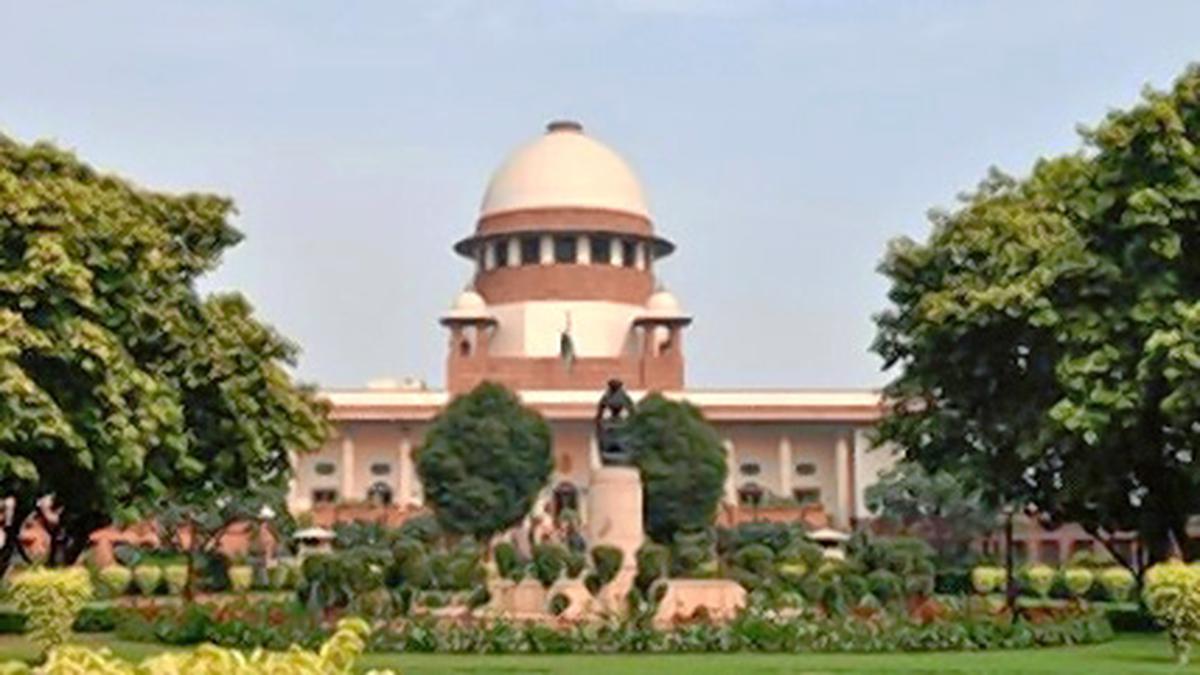
SC gives no relief to former soldier accused of revealing secret information in his book
The Hindu
The Supreme Court allowed a retired Indian Army officer to withdraw his appeal to quash a Central Bureau of Investigation (CBI) case accusing him of outing secret information about India’s external intelligence agency
The Supreme Court on September 25 allowed a retired Indian Army officer to withdraw his appeal to quash a Central Bureau of Investigation (CBI) case accusing him of outing secret information about India’s external intelligence agency, the Research and Analysis Wing (R&AW), in his book released 16 years ago.
A Bench headed by Justice B.R. Gavai said it would not entertain the plea by Major General V.K. Singh, represented by senior advocate Mahalakshmi Pavani and advocate Tomy Chacko, and advised him to approach the trial court seeking discharge from the 2007 case under the Official Secrets Act of 1923.
The petitioner argued that the High Court had declined relief to the 78-year-old author and former soldier “without appreciating that the materials placed on record do not reveal any ‘secret’ information other than those already available online or in the public domain”.
The Bench clarified in its decision that the trial court would decide Mr. Singh’s application for discharge without being influenced by the observations made in the High Court order.
Trouble began for Mr. Singh soon after the launch of his book India’s External Intelligence - Secrets of the Research and Analysis Wing in June 2007. The petitioner claimed that the work brought to light several lacunae in the functioning of the R&AW.
In September 2007, a complaint was filed with the CBI for legal action against Mr. Singh under the 1923 Act.

“Writing, in general, is a very solitary process,” says Yauvanika Chopra, Associate Director at The New India Foundation (NIF), which, earlier this year, announced the 12th edition of its NIF Book Fellowships for research and scholarship about Indian history after Independence. While authors, in general, are built for it, it can still get very lonely, says Chopra, pointing out that the fellowship’s community support is as valuable as the monetary benefits it offers. “There is a solid community of NIF fellows, trustees, language experts, jury members, all of whom are incredibly competent,” she says. “They really help make authors feel supported from manuscript to publication, so you never feel like you’re struggling through isolation.”

Several principals of government and private schools in Delhi on Tuesday said the Directorate of Education (DoE) circular from a day earlier, directing schools to conduct classes in ‘hybrid’ mode, had caused confusion regarding day-to-day operations as they did not know how many students would return to school from Wednesday and how would teachers instruct in two modes — online and in person — at once. The DoE circular on Monday had also stated that the option to “exercise online mode of education, wherever available, shall vest with the students and their guardians”. Several schoolteachers also expressed confusion regarding the DoE order. A government schoolteacher said he was unsure of how to cope with the resumption of physical classes, given that the order directing government offices to ensure that 50% of the employees work from home is still in place. On Monday, the Commission for Air Quality Management in the National Capital Region and Adjoining Areas (CAQM) had, on the orders of the Supreme Court, directed schools in Delhi-NCR to shift classes to the hybrid mode, following which the DoE had issued the circular. The court had urged the Centre’s pollution watchdog to consider restarting physical classes due to many students missing out on the mid-day meals and lacking the necessary means to attend classes online. The CAQM had, on November 20, asked schools in Delhi-NCR to shift to the online mode of teaching.









